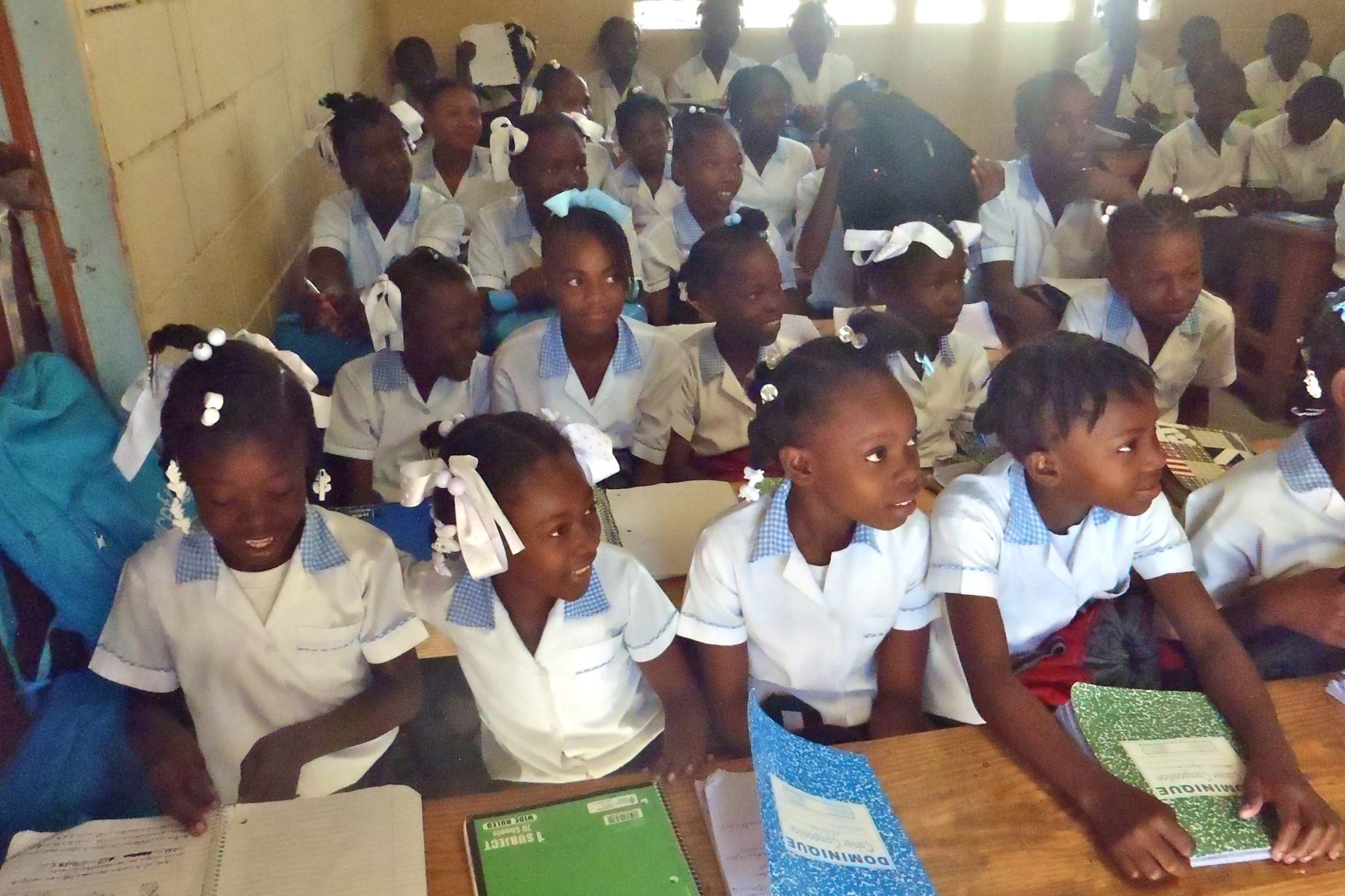
Ten years after the earthquake that wracked her native country, Erline Doovil still struggles to keep the orphans and staff in her care safe.
Doovil oversees the orphanage, a school and health clinics for the Colorado-based non-profit HaitiChildren. Things got so bad recently that political unrest and gang activity closed roads in and out of the orphanage for weeks, stranding the children’s caretakers.
To get them out, and a new group in, Doovil cut a deal with 14 village chieftains. The staff’s truck bypassed the roads and drove through fields. At every village, a new chief got into the truck and rode along to ensure safe passage.
“You never know who will be the next victim. In our country no one is safe from violence,” Doovil said by telephone from Haiti.
HaitiChildren’s director, Susie Krabacher, told Colorado Matters all of the staff made the trip unscathed, but not everyone in the area was so lucky.
“Erline actually watched two men assassinated right in front of our van during that last run,” Krabacher said.
Haiti’s government and economy were stressed through much of modern history and little, if anything, has improved since the Jan. 12, 2010 earthquake. Thousands of Haitians remain in shacks that were supposed to serve as temporary shelters. Sixty percent of the country’s population lives below the poverty line, and billions of dollars in foreign aid that flowed in after the disaster has since disappeared.
Krabacher opened HaitiChildren in 1994, years before the earthquake. The organization’s hospital was closed for repairs when the quake hit, and while the orphanage suffered relatively minor damage, it was looted by gangs.
When Krabacher arrived five days after the earthquake, 32 of the orphans were missing. All but one was eventually found, but six students at a HaitiChildren's school never returned — witnesses said they were buried in the rubble outside the building.
“It was like having open heart surgery without anesthesia in those days,” she said. “We know that we were supernaturally blessed by having as many survivors as we did.”
Another Coloradan, Wynn Walent of Lafayette, moved to Haiti after the quake to help. He stayed for several years before returning to the U.S. He now heads the Colorado Haiti Project, which focuses on rural development in the coastal community of Petit-Trou-de-Nippes, about 70 miles east from the Haitian capital, Port-au-Prince.
“The earthquake was not as destructive in our area as it was in Port-au-Prince and the surrounding areas,” Walent said.
But part of the reason the nation’s recovery has been so difficult is that Port-au-Prince is overcrowded and its services are overwhelmed.
“It’s a city that over 3 million people are living in … it’s not built to sustain even a fraction of that,” he said. “Our strategy, which fits with the big picture strategy for the country, is to invest in the rural parts of the country and to allow people, if they choose, to stay in the areas that their families are from, to not be forced to leave the rural parts of the country.”
Big international aid agencies have been fiercely criticized for hurting Haiti as much as they helped. The key to success is building relationships and letting the locals run their own programs, Walent said.
And as bad as things are in Haiti, much of the media coverage has failed to capture the strength of the Haitian people, he said.
“You’re hard-pressed to find a story that doesn’t follow Haiti’s name with the phrase, ‘The poorest country in the Western hemisphere,’ " Walent said. "That’s factual. But when it follows the name of the country in 95 percent of the reporting that you find, it comes to define the country and that’s just not accurate. It’s also a place of enormous richness, enormous possibility.”
Krabacher said her hope lies in the schools like the one HaitiChildren operates. Students accompany her to the U.S. Congress once a year to talk to lawmakers. They’re often with her when she visited Haitian officials.
“We absolutely push diplomacy and civic responsibility,” she said. “…We absolutely hope that the children we’re raising will become the future ambassadors, senators, congressmen and presidents of Haiti.”









